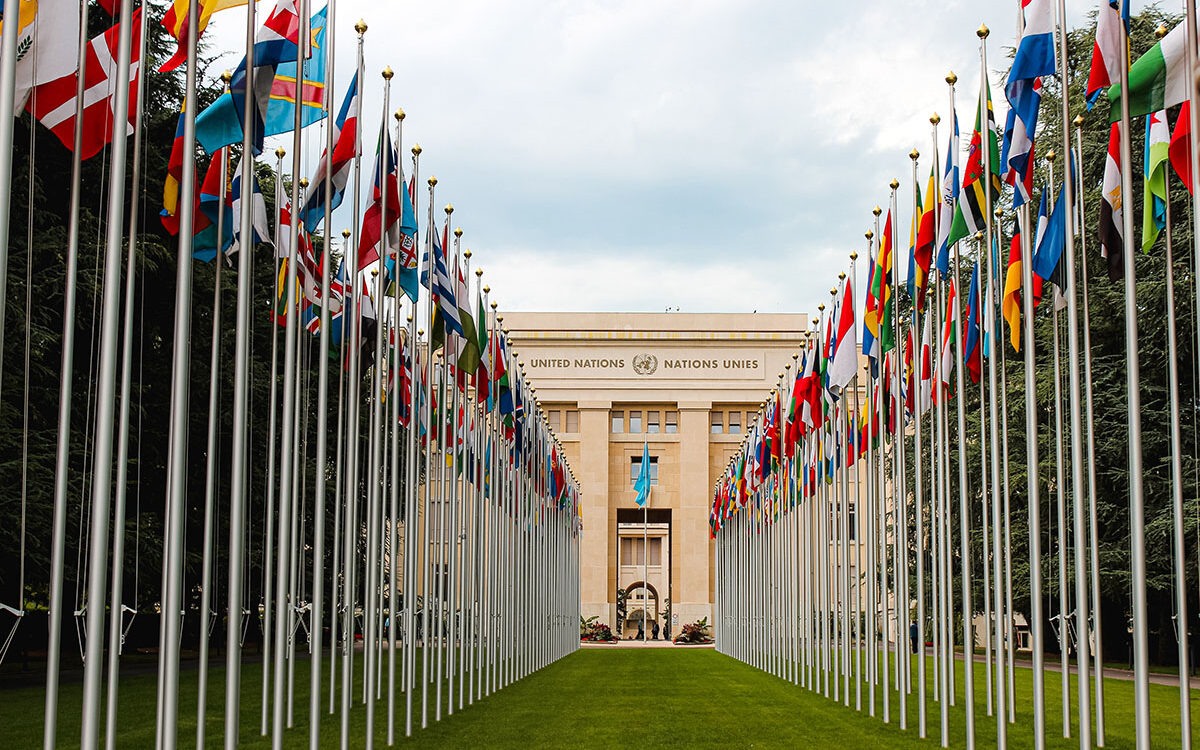ESL & Network et Antidox sont heureux d’avoir convenu un partenariat avec The Ambassador Partnership, cabinet de conseil britannique réputé et composé d’anciens ambassadeurs spécialistes de la résolution de conflits et experts en risques politiques (www.ambassadorllp.com).
In January, the Atlantic Council published its annual global forecast. As one part of this, 46% of the 167 experts polled predicted that Russia would “fail or break up” within ten years. Leaving aside for now the prediction itself, and the self-evident concept of breaking up, what are we meant to understand here by “fail”?
This first begs the question of what States are expected to succeed in doing. The standard Western liberal response would be to emphasise the welfare and happiness of citizens, enjoying a maximum of rights and freedoms in a secure environment. But for other political cultures the strength and survival of the State itself is fundamental: individual liberties or rights are entirely secondary. This can earn instinctive support from citizens fearful of predatory foreign powers, or of cultural threats seen as existential. In the major case of China, the historical memory of both foreign invasion and internal chaos has long resulted in societal acceptance of a strong authoritarian State. That may be changing, but the model is recognisable.
The great majority of the 195 members of the United Nations today were born late to statehood, at least in their present form. Long histories preceded their co-option into the originating European system of sovereign States, itself the product of the Peace of Westphalia which in 1648 ended the devastating Thirty-Years War. Sovereignty remains the foundation-stone of the State system, enshrined in international law, and fiercely defended. Only the limited pooling of sovereignty by the States of the European Union points the way to a future capable of evolution.
The truest form of State failure is thus the loss of sovereign existence, a fate promised by President Putin to Ukraine. By this exacting standard, all other kinds of failure are relative.
Short of extinction, States can fail in two main ways, and in each case partially.
One is in relation to each other and to the State system itself: they are expected to uphold the laws and norms of inter-state relations by avoiding conflict, respecting agreements and treaty obligations, cooperating in global endeavours such as combatting climate change, and generally in behaving responsibly. This becomes increasingly important as collective risks multiply. Climate change is the main one. And in the global management of pandemics, for example, the world cannot afford to leave a population unprotected and potentially generating new (or returning) forms of pathogen. Groups threatening international terrorism thrive in ungoverned spaces (Afghanistan leading up to 2001). In the matter of forced migration the receiving States look to States of origin to counter it by upholding minimum standards of competence and responsibility.
The other main way of States failing is in relation to the safety, well-being and prosperity of their citizens. In the post-war world, this aspect has been extensively developed, notably in the human rights standards codified in an array of UN Conventions and Declarations.
Increasingly in recent years, authoritarian leaders and regimes have sought to render these standards inoperative. Yet their fundamental importance remains. Many would hold that the attack on the primacy of human rights leads sooner or later to economic underperformance and political revolt, both of which signify relative State failure.
It follows that social justice can be one of the main measures of whether a State is succeeding or failing. It is indeed fundamental measure, as without it violence, repression and unrealised potential, both human and economic, are likely to follow. A well-established survey for evaluating social justice, broadly conceived, is the annual UNDP Human Development Reports (the latest takes the leitmotif of 2022: systemic uncertainty). Another measure, the Fragile States Index, is published by the US think tank, Fund for Peace.
But other factors too are involved in the strength of a State. A strong popular sense of historic nationhood is one: this was clear when the Egyptians defied the Islamist attempt in 2011-13 to sweep away the secular State in favour of a chaotic pan-Islamist Umma. Another factor is sheer hard power, and the ability to deter enemies: North Korea would come top of this list, though bottom on every other reading. Of more ambiguous value is a State’s power to repress its citizens with impunity (Iran and Russia are currently trending).
Faced with these choices of measure, the notion of a failed state emerges as problematic, capable of many interpretations. The failings of actual states are easier to understand. Some have started life as grimly dysfunctional and have never progressed: take Equatorial Guinea, the fief of a brutal and corrupt ruling family since independence from Spain in 1968. Myanmar, inheriting a contested identity as a nation state on independence in 1948, has been the victim of the no less brutal and corrupt Tatmadaw since 1962, with only an interlude of limited democratic rule in 2015-21.
Others started better but are now in deep trouble: Haiti, for all its distinguished origins in 1804 as the second republic founded in the Western hemisphere, and the first to abolish slavery, is currently an ungovernable, gangster-ruled zone of chaos. Yemen, which barely enjoyed stable statehood following its unification in 1990, began to fail sharply with the Houthi coup against the national government in 2015, drawing in foreign military actors. The conflict has left the country destroyed and millions dependent on long-term humanitarian assistance.
Civil conflict is a major factor in state failure, as are the effects of external actors intervening in them with force. Lebanon is the archetype of latent divisions being ruthlessly exploited by a variety of outside powers over the past half-century, starting with Syria and Israel, and now for the most part by Iran. One of its main predators, Syria, has since the uprising of its citizens in 2011 suffered a similar fate: the country is utterly impoverished, half its population is displaced internally or driven abroad; the regime is reviled by the world, is not in control of a large portion of national territory, and depends for its survival on the military force of Iran, Russia and Hizbullah. The theme of Iran occurs again in Syria’s neighbour, Iraq, which has both the history and the potential to be an effective and prosperous nation state, but is systematically undermined by Iranian manipulation and factional rivalry. Its descent towards failure was precipitated by the astoundingly ill-conceived Western military intervention of 2003 and its mismanaged sequel. And yet in none of these cases is sovereignty contested, and the world’s instinct is to preserve the principle of sovereignty come what may.
The effects of religiously-branded insurgencies also contribute to prolonged state failure, as we see in the stark example of Afghanistan, and in parts of Africa: Somalia and Mali stand out. The powerful call of religious identity also shapes the refusal by Israel to countenance the formation of the Palestinian state envisaged by the UN Partition Plan of 1947, and universally regarded as the right of the Palestinian people. That conflict is currently worsening, and its very persistence is as much a vulnerability for Israel as it is a denial of essential state-based rights. For all this, Israel’s own sovereignty within its recognised borders is not challenged.
Chronic conflict, with no path to resolution in sight, is today the condition of a significant number of states. Outside interventions are driven by geo-political calculations and by greed, the unending conflict in the eastern DRC being a prime example. Corruption has become the leading contributor to state failure, encouraged by an international financial system which, despite anti-money laundering initiatives by Western countries, allows abusive elites to hoard their wealth in complaisant financial jurisdictions, and to use it to maintain their control. Another factor favouring repressive regimes is the surveillance technology that allows them to suppress opposition and control public messaging. In both these crippling adverse conditions the private sector in the Global North is deeply implicated. And the distortions of the global capitalist economy condemn many struggling States to remain poor.
We seem to be witnessing a widening decline of governance, and of the ability of States to cope with their internal challenges. To single out failing States, of one degree or another, simply as regrettable anomalies would be dishonest without recognising the deterioration of the global order constructed since 1945. To return to the question of Russia: its part in that deterioration is clear, and it cannot escape the consequences of its own choices. But a “failing” Russia is not in itself a meaningful description. Russia failing the world, on the other hand, is.
Publié par The Ambassador Partnership le 2 Mars 2023 (Ambassador Partnership)






